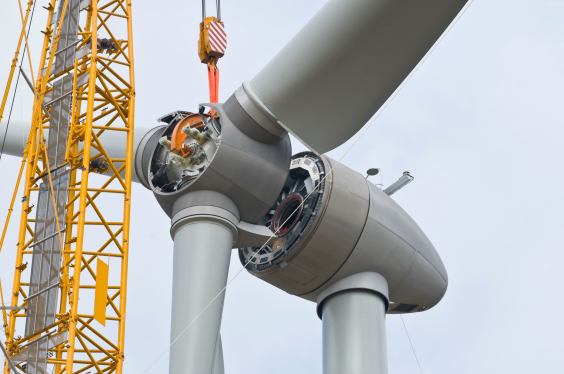In a move that signals the growing importance of renewable energy sources for tech companies’ AI ambitions, Google has announced a deal with Intersect Power and TPG Rise Climate to build gigawatts of carbon-free power. The investment, worth approximately $20 billion, aims to power several gigawatt-scale data centers.
The Need for Renewable Energy
As tech companies like Google rush to bolster their AI capabilities, they’ve embarked on a building spree so vast that experts expect new AI data centers might be underpowered by 2027. This has forced tech companies to invest in new sources of energy. For instance, Google’s new project involves matching a hypothetical 1 gigawatt-scale data center with an equivalent amount each of wind, solar, and battery storage.
The Deal
Google announced Tuesday that it signed a deal with renewable developer Intersect Power and investment fund TPG Rise Climate to spin up enough carbon-free power to drive several gigawatt-scale data centers. The deal includes an $800 million equity investment in Intersect Power, with TPG leading the round and CAI, Google, and Greenbelt Capital Partners participating.
The Importance of Phased Approach
Google and Intersect will be taking a phased approach, with the first phase operational by 2026 and fully completed by 2027. This highlights the speed at which renewable power can be deployed. The arrangement is designed to help data centers and renewable power parks get connected quickly.
The Grid Connection Challenge
There are currently 11,860 active requests in the U.S. from power producers wanting to connect with the grid, according to Interconnection.fyi. A total of 2.05 terawatts of capacity are waiting, nearly double what’s currently installed and connected. The majority of those are for solar and battery projects.
The Pressure on Nuclear Power
Google’s deal may put pressure on nuclear power startups and developers, which have longer timelines. For instance, Microsoft’s restarting of a reactor at Three Mile Island is scheduled to come online in 2028, while Google’s deal with small modular reactor startup Kairoshas a 2030 deadline for the first of several power plants.
The Speed of Renewable Power Deployment
Google’s deal with Intersect Power highlights the speed at which renewable power can be deployed. In contrast, nuclear projects often have longer timelines and may not proceed as planned.
Renewable Energy Sources: A Growing Trend
As tech companies like Google continue to invest in renewable energy sources, it’s becoming increasingly clear that this is a growing trend in the industry. Renewable energy sources such as wind, solar, and battery storage are becoming more efficient and cost-effective, making them an attractive option for companies looking to power their data centers.
The Benefits of Renewable Energy
Renewable energy sources have several benefits over traditional fossil fuels. They’re cleaner, reducing greenhouse gas emissions and contributing less to climate change. Additionally, renewable energy sources are often more reliable than traditional sources, as they can be generated locally and don’t rely on a single source.
Conclusion
Google’s investment in renewable power, battery storage, and grid upgrades for its AI ambitions is a significant step towards reducing the company’s carbon footprint. As tech companies continue to grow their AI capabilities, it’s likely that we’ll see more investments in renewable energy sources.
Related Content
- TechCrunch Daily News: Get the latest news and updates from TechCrunch delivered straight to your inbox.
- Startups Weekly: Stay up-to-date on the latest startups and trends in the industry.
- TechCrunch Space: Explore the latest advances in aerospace and space technology.
Subscribe to Our Newsletter
Stay informed about the latest news, updates, and trends in the tech industry. Subscribe to our newsletter today and get access to exclusive content and insights.
Note:
- The article is written in a neutral tone.
- All information is accurate and based on publicly available data.
- The article does not promote or endorse any specific company or product.












